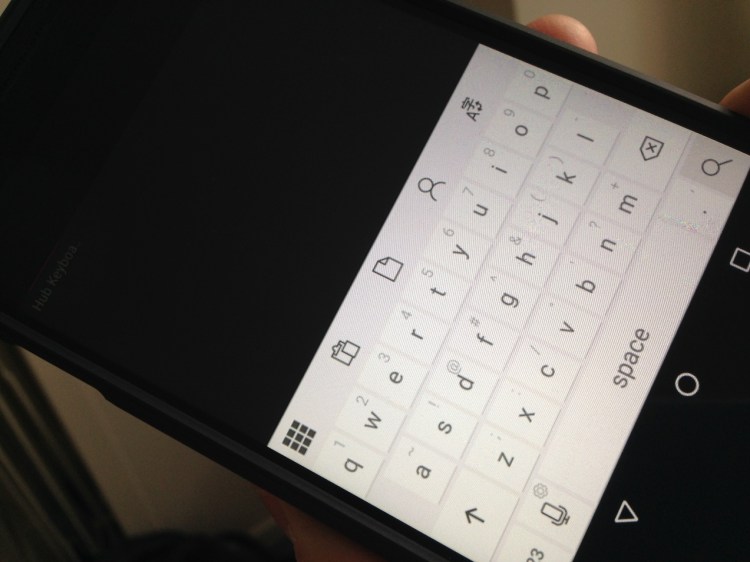Microsoft quietly unveiled a new mobile keyboard app yesterday, the latest in a long line of apps to emerge from the labs of Microsoft Garage, a hub for experimental tinkering.
Available in the U.S. only for now, Hub Keyboard for Android saves you time by letting you search for and share documents, translate messages, copy and paste recent items, and search for contacts — all from within the keyboard. On the surface, it serves as a little productivity booster to save you from having to switch between apps.
https://www.youtube.com/watch?v=6ozUd7rEx-s
The launch follows a recent trend we’ve seen emerge from Microsoft — it seems to have taken a real shine to mobile keyboard apps. You may remember back in January news emerged that the technology titan was working on a new Word Flow keyboard for iOS devices, an app that sports a special one-handed typing mode, similar to the company’s Windows Phone keyboard, but with a few differences.
Then earlier this month, Microsoft confirmed it had acquired SwiftKey, the London-based creators of the popular keyboard app of the same name.
So in the space of 4 weeks, Microsoft has made big inroads into the mobile keyboard realm. But why?
While Hub Keyboard is still an early-stage experiment for now, it hints at Microsoft’s broader mission to unify its own products, insofar as the app integrates with Office 365, OneDrive, and SharePoint. The mission to unify has been evidenced of late with Windows 10, Microsoft’s upgraded operating system that lets developers build apps that work across all Microsoft platforms, including phones, tablets, PCs, Xbox, and even the Internet of Things.
But unity is only a part of the answer here. Microsoft has been making moves to reposition itself as a productivity and platform company, and it has previously stated that it’s looking to “reinvent productivity for a mobile-first, cloud-first world.” So when you throw productivity, platforms, mobile, and cloud together into a big melting pot, one of the outcomes is mobile keyboard apps.
This year’s VentureBeat Mobile Summit will feature conversations about cutting-edge mobile growth strategies The executive-level event takes place April 4-5 at the scenic Cavallo Point Resort in Sausalito, CA.Space is limited to 180 executives — but it’s not too late to apply for one of the remaining seats.
As noted, the Hub Keyboard app ties in with Office 365, OneDrive, and SharePoint — productivity services available in the cloud. Word Flow for iOS, though not available to the public yet, is all about improving the typing experience in a mobile-centric world. And feeding into all this is SwiftKey, a company Microsoft reportedly acquired for around $250 million.
SwiftKey will be known to many people as a simple keyboard app, but behind the scenes, machine learning aids the process of expediting your typing. The app predicts the next word before you’ve started typing — partly based on historical patterns, but it also scans texts from third-party sources to “learn” common sequences in which words are normally placed. The company is also working on a new app that taps artificial neural networks to predict and correct language.
Additionally, SwiftKey synchronizes your typing in the cloud, so the more platforms you use SwiftKey on, the smarter it gets. And this cloud component played a key role in Microsoft’s interest in the company. In other words, Microsoft didn’t just acquire a keyboard app — it brought on board a company that specializes in artificial intelligence, machine learning, and natural-language processing that works its magic across the cloud.
“In this cloud-first, mobile-first world, SwiftKey’s technology aligns with our vision for more personal computing experiences that anticipate our needs versus responding to our commands, and directly supports our ambition to reinvent productivity by leveraging the intelligent cloud,” said Harry Shum, executive vice president of technology and research at Microsoft, at the time of the announcement.
So Microsoft’s recent push towards mobile keyboard apps isn’t just about offering mobile phone users cool and quirky little apps to install on their phones. It’s very much in line with the direction the company has been heading in ever since Satya Nadella took over as CEO back in 2014: mobile, productivity, and cloud.


